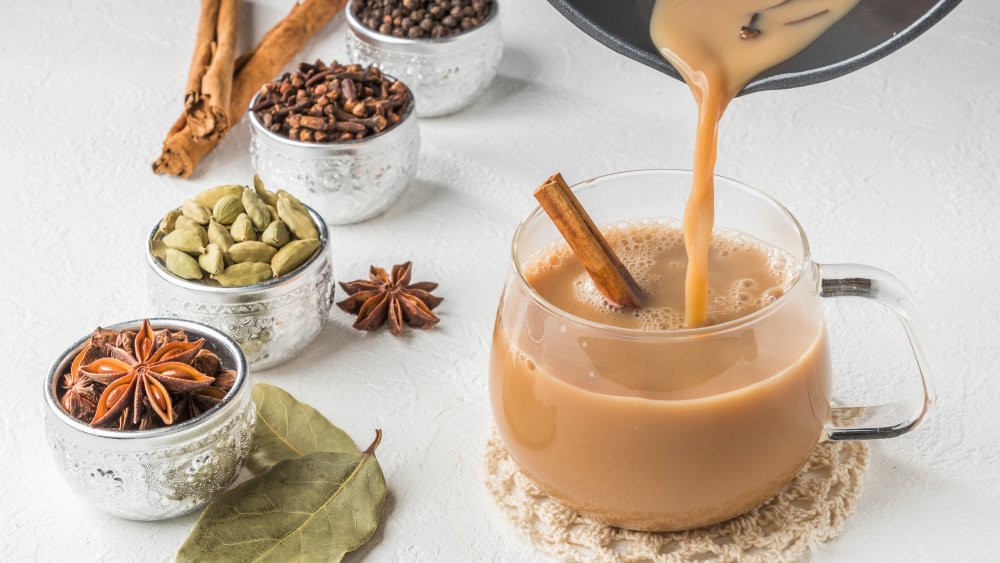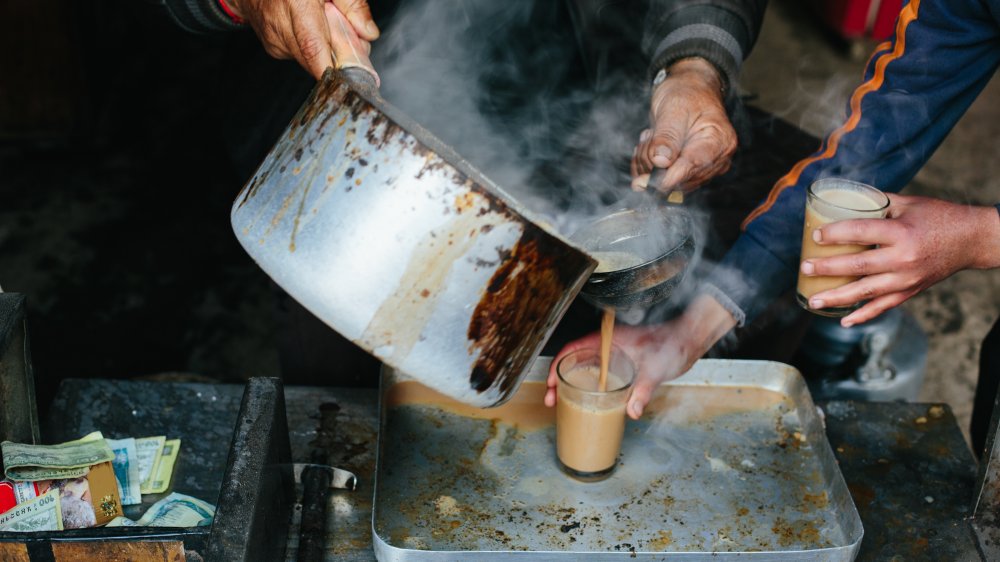Why WebMD's Chai Latte Recipe Is Causing So Much Controversy
WebMD strives to be a one-stop shop for all your health needs, where people can learn about the safety of taking medications while pregnant, finding a dentist, or checking their own symptoms — although that information isn't always reliable (via The Outline). WebMD's all-encompassing approach to health even includes a "food and recipe" section. WebMD probably isn't the first site that comes to mind when people are looking for recipes, and the site certainly didn't boost its culinary reputation with the chai latte recipe it recently tweeted.
WebMD deleted the tweet, but the linked video remains at the top of its "food and recipe" page at time of writing. The ingredients in the WebMD spicy tea include black tea, cardamom, cloves, star anise, cinnamon, ginger, coconut milk, and maple syrup. Some of these make the list of acceptable ingredients for masala chai — specifically the cinnamon, cloves, ginger, and cardamom. Black pepper is also standard (via Comic Sands), but WebMD omits it.
The ingredients that really upset some people who saw WebMD's tweet were the star anise, coconut milk, and maple syrup. Maybe the beverage was some sort of Indian-Italian-Thai-Canadian fusion, Comic Sands suggested. Sumedha Bharpilania at BuzzFeed wrote that adding coconut milk, anise, and the syrup no doubt makes the concoction the favorite drink of the devil.
Other recipe sites have chai lattes that are a little off
The Indian community on Twitter was unimpressed, suggesting maybe WebMD was trying to make another dish altogether. "This is neither 'chai' nor 'latte," @ra_ra_ra_rocky tweeted, or, as noted on Twitter by @urmisgr8: "You can't just wake up one day and rename existing cuisines. ... I stopped watching at coconut milk."
WebMD acknowledged its mistake with a followup tweet: "We hear you loud and clear! Our most recent recipe video really missed the mark. Thank you for letting us know." But WebMD isn't the only outlet spreading chai latte recipes that are out of bounds. The Kitchn has a recipe for masala chai that seeks to emulate an authentic version the author found at a Pakistani deli in New York. It includes star anise. The Kitchn has a separate recipe for a chai tea latte. It sticks to the five standard spices but recommends maple syrup as a sweetener for its caramel notes.
Is it acceptable for someone to embrace another culture's food as their own, and then alter it, or should we leave the masala chai to the people of India? Vikram Barhat had an answer. In response to WebMD, Barhat tweeted a photograph of grilled dosa, a south Indian rice pancake, with the caption, "And I just made some flame grilled whoppers. Happy to share the recipe upon request."

